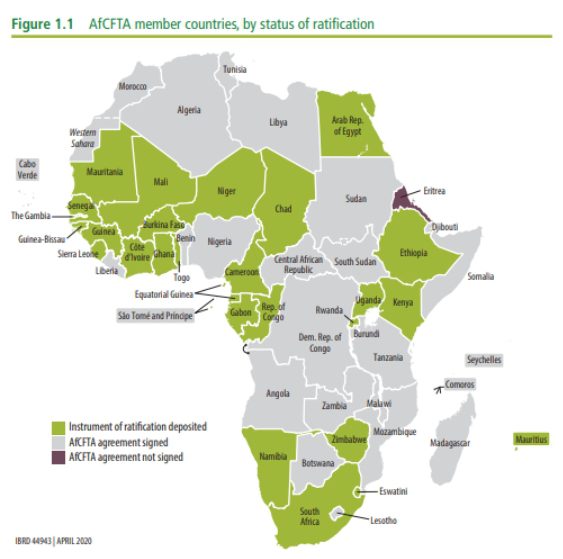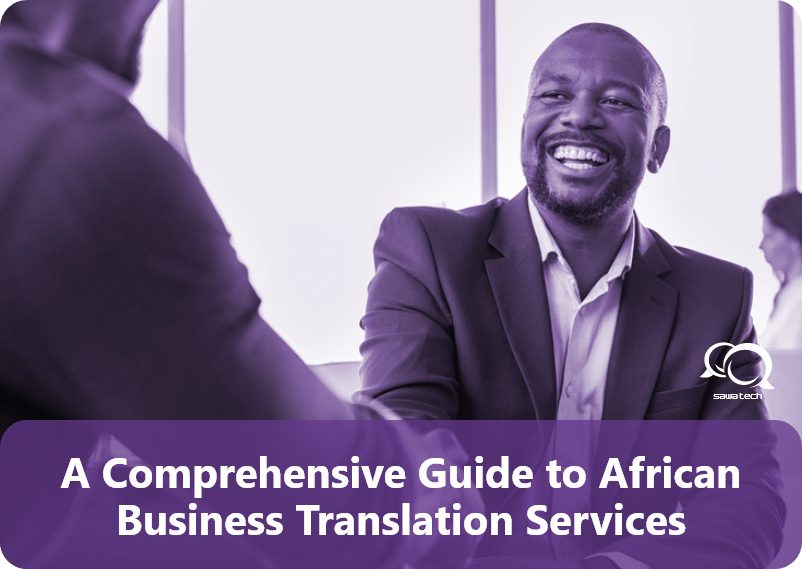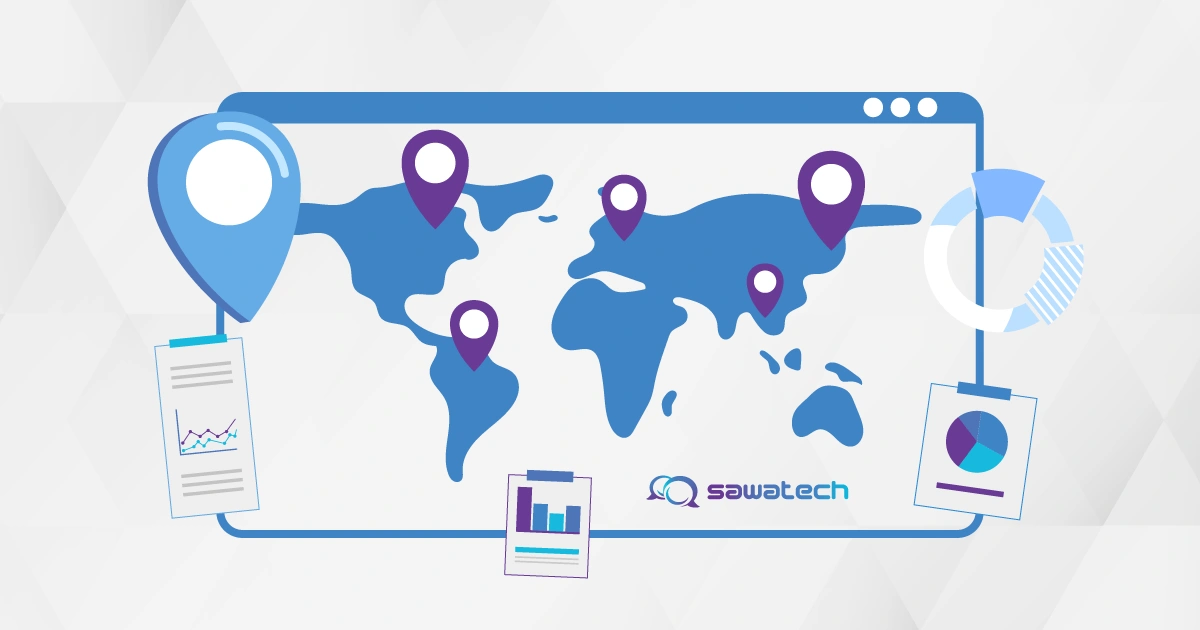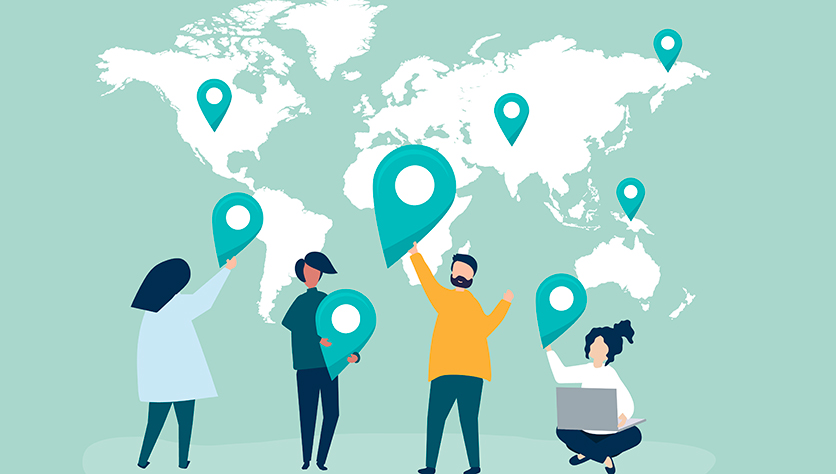Mama Africa is indeed becoming a fast-emerging market and is set to outperform the rest of the world in economic growth in 2023 and 2024. The second-largest continent by land area and population comprises 54 countries with a population of 1.44 billion, constituting roughly 16.72% of the global population.
With such a huge population and immense potential, Africa makes an ideal market for business expansion.
Surprisingly, several African markets remain relatively untapped. There are many challenges to market entry; one of which is language barriers.
Enters African business translation services!
In this blog, we explore what we mean by business translation, how it can help drive your business growth in Africa, and what you need to consider before getting started.
The Why: 3 Reasons You Need African Business Translation Services
Africa’s rapid population growth, rich natural resources, and growing culture of entrepreneurship hold immense potential and growth opportunities for both local and international businesses.
However, the journey into African markets comes with unique challenges, among which, linguistic diversity and effective communication stand as pivotal factors.
And, as the saying goes, when in Rome, do as Romans do. When doing business in Africa, you must go with African business translation.
Wondering why? Let’s see.
1. Economic Growth in Africa
Over the past few years, Africa has been in a constant state of growth. This trend is projected to continue, with Africa set to be the second-fastest growing region in the world after Asia in 2023-24. Looking ahead from 2014 to 2050, PwC projects that Nigeria, South Africa, and Egypt will reserve their places in the top 10.
So, yes, Africa is economically thriving, and the African business rate is moving at a fast pace, too. Several industries in Africa are remarkably advancing. Entering one of these markets could be a promising business investment for you.

Similar success is present in the automotive industry, e-commerce, telecommunications, and more.
2. African Continental Free Trade Area (AfCFTA)
In 2019, Africa implemented a Free Trade Agreement, commonly known as “AfCFTA”. This trade agreement aims to lower trade expenses and enhance Africa’s integration into global supply chains. The agreement will eliminate 90% of tariffs, address persistent non-tariff barriers, and establish a unified market fostering the unrestricted movement of goods and services.
But what does this exactly mean? It means that the agreement will create the largest free trade area in the world, presenting a transformative opportunity for businesses to leverage the vast potential of the African market and streamline their expansion, investment, and collaboration in the region.

But can you operate across the African continent, where over 1000 languages are spoken, without speaking in their own languages?
The answer is probably no, and this is where business translation is indispensable!
Without accurate business translation services, your odds of success are way lower, especially when 40% of customers only buy from brands in their mother tongue. Business translation will allow effective communication in Africa and will certainly give you an edge against other global investors.
3. Diverse Languages
Africa’s linguistic diversity is unparalleled, with thousands of languages spoken across the continent. Africa consists of 54 countries with about 1000-2000 African languages, each with its own diverse culture.
The continent is so diverse that South Africa alone has 11 official languages. And South Africa is a booming country you definitely want to invest in. In addition to that, Africa is home to the fourth and tenth most spoken languages in the world, Arabic and Swahili, respectively.
This means that by translating your business material to only two of Africa’s languages, for instance, you connect with an audience of 300 million Arabic speakers and 200 million Swahili speakers.
Business translation services bridge this linguistic gap and enhance cross-cultural communication, allowing companies to convey their messages accurately and appropriately to diverse audiences. This way, businesses can build strong rapport and effectively navigate diverse cultural landscapes in African markets
The What: Business Translation Services
1. Marketing and Advertising Content
When expanding into African markets, business and marketing translation is essential to reach and engage local audiences. From your website and product descriptions to catchy slogans to compelling visuals, translating your marketing content helps your potential customers understand the value your products or services offer and allows your brand’s message to resonate culturally and emotionally.
2. Technical and User Manuals
Say you’re selling electronic devices; for example, this means that 53% of customers use the product’s technical documents before making a purchase.
For businesses introducing products or services to African markets, translating technical and user manuals is crucial. It allows your new customers to understand how to correctly use your products, reduce frustration, and ensure their satisfaction.
In many cases, it’s a regulatory obligation to provide product instructions as well as safety precautions and warnings in the language of your target users to guarantee their safety and prevent any potential accidents.
3. Software Localization
Customers won’t invest money in any software if it doesn’t offer them the best possible user experience.
When introducing a new device, app, or even a game to African markets, translating and adapting these software products is a critical aspect of your comprehensive business translation strategy.
This localization effort improves the user experience by making the software accessible, understandable, and usable in the target locale, empowering users to fully engage with your software in a language they are comfortable with.
4. Legal Documents and Contracts
Entering African markets requires careful consideration of legal matters to navigate the complex legal landscape of each country. Translating contracts and agreements, for instance, is imperative to ensure that all parties fully comprehend their rights and obligations.
This also includes regulatory compliance documents and intellectual property protection, such as patent applications, trademarks, and copyrights, safeguarding your innovations and creations in the local context. This way, your business can operate transparently and ethically, demonstrating a commitment to compliance and local legal frameworks.
5. Financial Reports
Accurate translation of financial reports and statements preserves your financial rights and helps prevent any financial repercussions caused by misunderstandings.
Not only that but providing your financial information in the local language of the country you are planning to operate in establishes your business credibility.
Do you want to know more about the challenges of African language translation?
The How: 3 Things to Consider Before Kicking Off Your African Business Translation Project
1. Research Your Target Audience
Business translation is all about effective communication to achieve the best business results. And effective communication entails so much more than linguistic accuracy.
It entails culturally appropriate and technically precise translations. In a vast continent such as Africa, the only way to achieve that is to research your target audience well before embarking on the translation journey.
Researching your target audience entails a lot. For instance, Swahili is spoken across 14 African countries. This means that if you’re translating to Swahili, you’d need to tailor your content to the specific country you’re expanding to.
Remember, culture is tied to the traditions of the country, not only its official language.
In addition, you will need to conduct research for specific fields of business because technical jargon is highly cultural as well. This means that if you’re translating to Swahili for a South African audience, you need a native Swahili translator from South Africa.
2. Analyze your Content
As established earlier, there are different types of content that require business translation. You need to analyze the type of your content to decide what language solution will best fit your business’s needs.
What does that exactly mean?
Easy. For your legal and financial documents, you may not always need localization. You’d simply need technically precise and linguistically accurate translations.
However, when it comes to your marketing material, you definitely need more. You’ll need transcreation experts to creatively capture the essence of your campaign, maintaining your brand’s identity and other aspects like search engine optimization.
Moreover, if you’re looking to provide a local version of your website, you’d need localization services, desktop publishing, and user interface localization to provide your local audience with a website specially tailored for them.
In the case of transcreation and localization, there’s relatively a lot to change including slogans, colors, symbols, layout, and so much more.
And you need a multidisciplinary team with a creative eye for that.
3. Research Regulatory Compliances
Regulatory compliance is a big deal when you’re expanding into a new country because language barriers are also a big deal in businesses.
While language barriers can only affect productivity and communication in low–risk sectors, they have much more serious safety implications in high-risk sectors. In fact, language barriers can sometimes lead to serious injury or loss of life.

On a less life-threatening note, compliance is also important to your registration and workflow.
For instance, the official language of documents in South Africa changes across provinces. And it is mandatory to provide legal documents in the official language of each province. Providing your documents in a foreign language language, for example, could hinder your business growth and delay your registration.
That’s why business translation services are a necessity for your global expansion.
Sawatech: Your African Business Translation Partner
Sawatech is a translation agency located in the heart of Africa. For over 11 years, we’ve been providing impeccable language solutions across more than 120 languages, with a particular focus on African languages.
We are committed to the highest quality possible thanks to our ISO 17100 compliance, as well as swift turnarounds, and budget-friendly pricing plans. With the help of our multidisciplinary team, we offer you a full range of business translation services, from document translation to software localization, DTP services, and more!
Supercharged with the best translation and localization tools, our team has the skills and expertise to take on any project of any scope.
If you’re looking for African language solutions and business translation services, Sawatech is ready and equipped to support your expansion ambitions in Africa.
Whatever your financial needs are, we are here to help.




